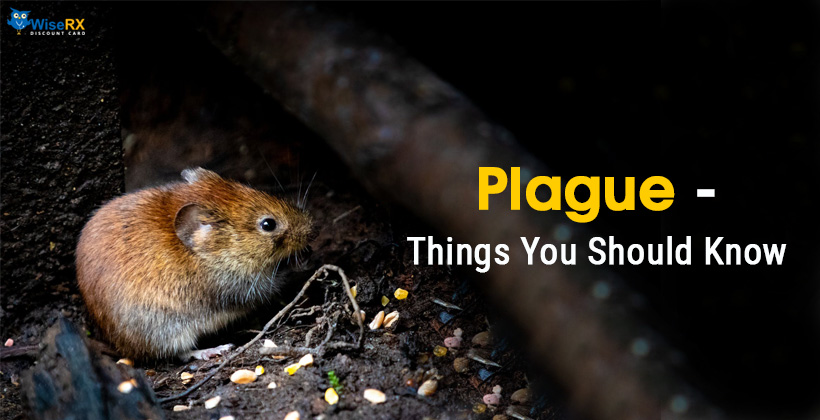
Plague – Things You Should Know
Plague is a serious bacterial infection, caused by a germ, Yersinia pestis.
The most common form of plague is bubonic. It usually happens when an infected flea bites you or your pets.
If left untreated, bubonic plague turns into the septicemic plague. It usually happens when the bacteria causing plague multiply in the bloodstream and spread throughout the body.
Sometimes the plague bacteria can infect the lungs and is known as pneumonic plague.
How Is Plague Spread?
People can get plague by touching infected animals, being bitten by an infected flea, or inhaling droplets from the cough of an infected person or animal.
What Are the Symptoms?
Symptoms may vary by type”
- Symptoms for bubonic plague include swollen, painful lymph nodes, usually in the armpit, groin, or neck. Those infected may have chills, headache, fever, and extreme exhaustion.
- Symptoms for Septicemic plague are belly pain, high fever, exhaustion, and light-headedness.
Treatment for plague
As soon as your healthcare provider finds out that you’ve a plague, you’ll be admitted to a hospital. You might need to stay in a hospital for 7-10 days depending on the severity of the illness. Your doctor may recommend you powerful antibiotics such as
- Doxycycline (Vibramycin)
- Gentamicin
- Levofloxacin (Levaquin)
- Ciprofloxacin (Cipro)
These antibiotics have dropped the fatality rate to about 11% in the US.
Those exposed can also be treated. If you have been exposed to plague, taking care of a plague-infected animal, or a flea jumps off, you can get infected and can be a candidate for post-exposure antibiotics.
What Is the Best Way to Prevent It?
To prevent plague, the CDC recommends to take the following measures:
- Treat your cats and dogs for fleas regularly
- Take your sick pets to the vet
- Store pet food in containers that rodents can’t enter
- Don’t let your pets go out in high rodent population areas, such as prairie dog colonies
Other preventive measures you should take:
- Don’t touch dead animals with your bare hands. Wear gloves to handle them
- Clean your surroundings. Remove excessive trash and firewood near your house
- Don’t forget to report public health department about sick or dead animals
- Use DEET containing insect repellents to control infected fleas


